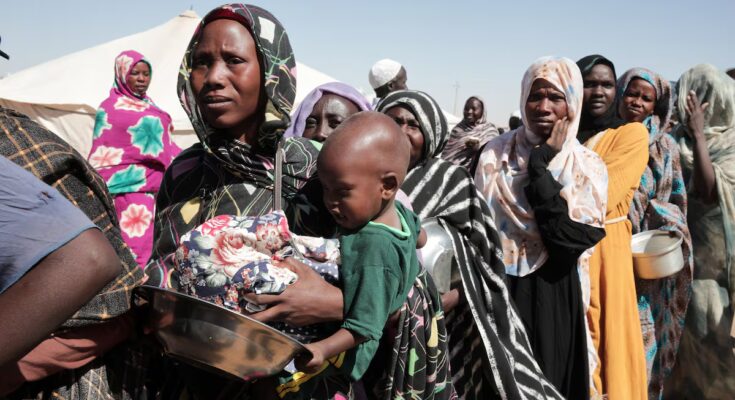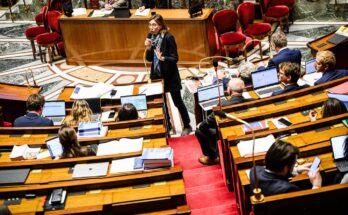I am deeply affected by the violence that has spread across Sudan since April 15, 2023, a country of powerful beauty. Since the beginning of the fighting, how many atrocities have the inhabitants of Khartoum, Jazira, Sennar, Kordofan and Darfur had to suffer! What shocked me most in all my time spent in the Sudanese crisis was the scale of the unfolding disaster. I have not found a single Sudanese, inside or outside the country, who has been saved from the direct or indirect consequences of the conflict.
I remember the people of Khartoum crowded into a student hostel in Port Sudan in May 2023. The facilities were not prepared to house dozens of families and they told us they had nothing except the clothes they were wearing when they fled when fighting broke out in the capital.
I remember the refugees fleeing the massacres of June and November 2023 in El Geneina, the capital of West Darfur state, who I met when, in May 2024, the Rapid Support Forces (RSF) began the siege of El Fasher. They told me horrific stories of what they had seen with their own eyes, of the massacre of thousands of their neighbors. Even then they feared that the siege of El Fasher would degenerate into similar actions.
I remember the villagers of Jazirah State who told us of the violence they suffered when their villages were brutally attacked by the RSF and forced to flee en masse, at the end of October 2024. We responded for the second time in a few months to a gigantic cholera epidemic, the consequence of overcrowded shelters, lacking clean water and adequate sanitary conditions.
I remember the emergency room of the Al Nao hospital in Omdurman, on 1 February 2025, when the RSF bombed a market a few kilometers from the hospital, during the busiest hours. The room was full of patients, living and dead, and in between all the Ministry of Health staff did everything they could to save lives and clean up the blood spilled on the floor.
I remember the shock and the sadness on the faces of people returning to Khartoum after Ramadan. They returned to neighborhoods completely destroyed after months of relentless street-to-street fighting and indiscriminate shelling with heavy artillery. Aerial bombings by armed factions with the aim of destroying the enemy, instead of safeguarding human lives.
I remember the mothers in the neonatal wing of El Geneina University Hospital, counting the newborns who had died just the previous week due to the immense shortcomings of the health system.
The scale of the devastation in Sudan is heartbreaking. The entire social fabric is torn to pieces and people are forced, by force of circumstances, to take sides. The complexity of the dynamics is too long to explain in a few sentences, but the most important thing is to understand how deep the wound of the Sudanese people is and how it continues to deepen to an alarming extent, at the rate of the horrible news that arrives every day. Conflicting forces emerge along ethnic lines that each side exploits to its advantage, as did the colonial powers that preceded them. The causes of these fractures in society are deeply rooted in the past, and the reverberations of what happens today will be part of the lives of the generations that follow us.
I could not describe what we are witnessing in Sudan as inhumane, because this is the first step in a process of otherness that is at the root of the current situation. Rather, it is the darkest side of humanity that comes to light in the actions that have been carried out against the civilian population for 30 months. Unfortunately, it is very reminiscent of the genocide of the early 2000s. The violence unleashed in that period already had the same protagonists as today’s, even if many relationships and alliances have changed in the meantime. For too long, even as I write, the various armed forces in Sudan have been erasing human beings, both on paper and in their speech, to justify the physical and cultural destruction of entire communities they consider nothing more than slaves and enemies.
Violence and darkness, however, are not the only echoes of the past that we experience today. The generosity, courage and boldness of the Sudanese are reflected in the extension in many forms of their ancient traditions of solidarity. Community kitchens have fed millions of people for months and even years. Doctor networks and emergency rooms treat hundreds of thousands of patients and save countless lives. And these are just a couple of examples of the mutual aid ecosystem that exists in Sudan. Not only are they doing incredible work, but they account for the majority of aid that Sudanese receive, especially in areas where the state and international organizations have not been able to enter for months. I want to pay a special tribute to all our Sudanese colleagues whom I admire for their commitment, love and determination, who tirelessly defended the brightest part of humanity despite fear, desperation and devastation during the darkest times. It is a pride and an honor to work with them.
Mutual help arises from tradition and belief, but also from necessity. As the conflict has continued, needs have increased in more and more parts of the country. Weapons from foreign powers continue to enter the country – despite the embargo that had to be extended from the Darfur region to the entire country – and international funding continues to decline at a steady rate.
The international humanitarian community failed the Sudanese people when all institutions abandoned them to their fate by evacuating their staff at the start of the war. It also continued to fail them, failing to provide help where it was needed most and to the extent needed, due to a lack of leadership and cohesion. Even mechanisms such as the United Nations Security Council, international organizations and foreign powers deeply involved directly or indirectly in the conflict have failed the Sudanese people. Despite UN Security Council Resolution 2736 calling on the RSF to end the siege of El Fasher, no concrete measures were taken. In the post-truth era we live in, each warring party claims to defend the people and uphold international humanitarian law, while decision-makers claim they lack the means to influence the course of action. Empty statements are empty gestures: the Sudanese people have yet to see real political will to bring about change in their lives.
Despite repeated warnings from history, experts, workers on the ground and the Sudanese themselves, those who have the power to do anything in the international system, have failed to prevent the deaths of hundreds of thousands of people. This war was not inadvertently forgotten but, rather, consciously ignored. What is happening now was predictable and not inevitable.
The choice is ours.



